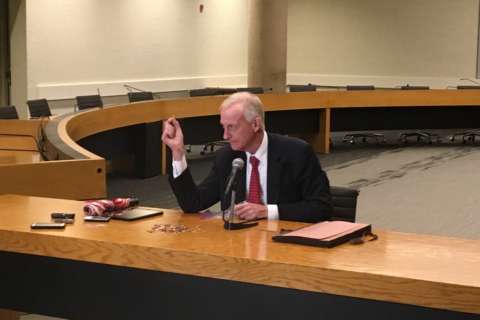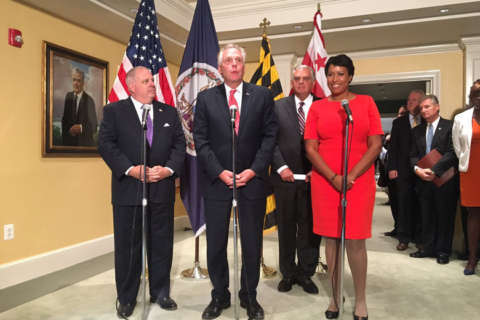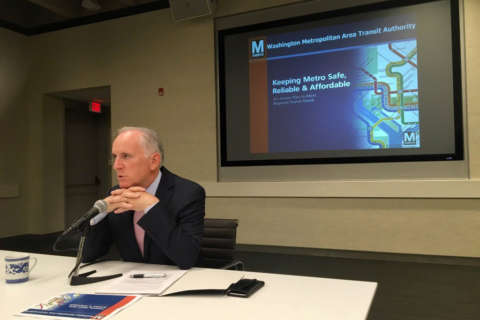
WASHINGTON — Elected leaders from across Northern Virginia are set to endorse Metro reforms that could lead to a larger board than recommended by a state review, salaries for Metro Board members and support for contracting out certain operations.
A Northern Virginia Transportation Commission committee led by Fairfax County Supervisor John Cook, a Republican who represents the Braddock District, will present its recommendations to the commission Thursday night, which include an emphasis on the fact that local governments in Virginia foot much of the bill for Metro, unlike in Maryland where the state pays.
The draft resolution supports a 12-member Metro Board with tighter review of ethics and conflicts of interest. That would allow for two elected leaders selected from the Virginia jurisdictions (Alexandria, Falls Church, Fairfax, Arlington County, Fairfax County, and soon Loudoun County), plus a state appointee.
Former U.S. Transportation Secretary Ray LaHood is recommending a five-member board with state appointees, one member appointed by the federal government and one chairman agreed on by the four members.
The committee supports General Manager Paul Wiedefeld’s requests for more power in labor negotiations through the authority to contract out certain work and a change to federal law that would require arbitrators to take into account Metro’s promises to local governments about keeping spending under control as part of decisions on labor contracts.
Given the serious disputes among Maryland, Virginia and the District on how and whether to get Metro the dedicated capital funding Wiedefeld says the agency needs for maintenance and repairs over the next decade, the commission is set to ask Wiedefeld to lay out more specifically how any of his cost-cutting proposals could be accomplished.
The draft resolution calls on Wiedefeld and the current Metro Board to lay out “a detailed business plan” by the end of the year to demonstrate how Metro could actually keep cost increases for local governments from growing more than three percent each year.
It also calls for a specific plan to address unfunded pension and other post-employment benefits liabilities, which are in line with other similar pension systems.
Maryland and Virginia’s General Assembly sessions begin shortly after the new year, so the commission hopes that providing a plan before then could leave time for some action this winter to head off potentially significant fare hikes or service cuts next summer or fall.
Among other changes, the commission recommends ending the jurisdictional veto that allows a unified D.C., Maryland or Virginia to block any Metro Board actions, since the report concludes it gets in the way of regional policy decisions.
The commission also concludes the Metro Board has too many committees and too many meetings. Given the large time commitment, the report recommends Metro pay salaries to Metro Board members, who should comprise elected and nonelected leaders with experience in planning, management, engineering, finance, safety, human resources, law or regional transportation issues. While it does not seem like a giant leap, the recommendations also suggest that “all members of the WMATA Board should be familiar with the WMATA transit system.”
For the federal government to maintain its seats on the board, the commission recommendations suggest requiring an ongoing commitment of at least $150 million in special federal capital funding for Metro. The current 10-year, $150-million annual capital contribution is due to expire.
The Northern Virginia Transportation Commission is made up of six members of Virginia’s General Assembly, five elected officials from Fairfax County, three from Arlington County, two from Loudoun County, two from Alexandria, one from Falls Church, one from Fairfax and one state appointee.








